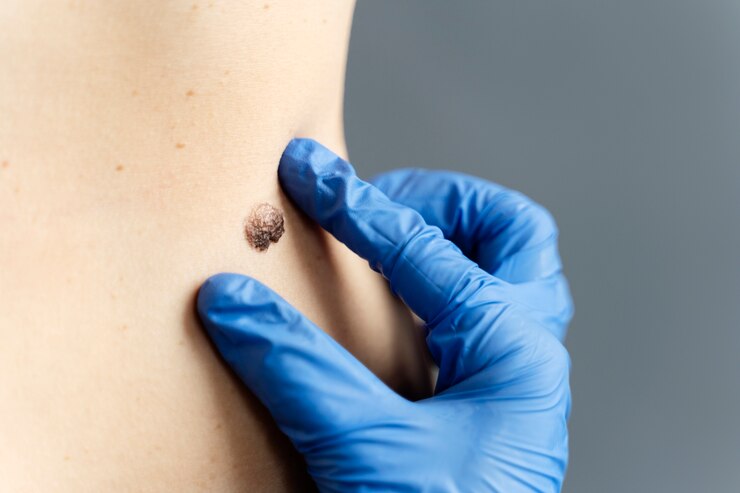Warts are small, rough growths on the skin that can appear anywhere on the body. They are caused by a viral infection, specifically by the human papillomavirus (HPV). This virus triggers the rapid growth of skin cells, which leads to the formation of these raised, often bumpy spots. Warts are usually harmless, but they can be unsightly and sometimes uncomfortable.
If you’re experiencing warts, you’re not alone. These growths are common, and many people get them at some point in their lives. However, some warts may take time to go away on their own, while others may require medical treatment. In Andheri, Mumbai, Tvaksh Advanced Skin & Hair Clinic, led by expert dermatologists Dr. Suraj R. Shetty and Dr. Joshika Shetty, is renowned for providing effective and safe treatments for various skin conditions, including warts. These professionals have years of experience in diagnosing and treating warts, ensuring patients get the best care possible.
Types of Warts
Warts can be categorized into different types, each with distinct characteristics:
-
Common Warts: These are the most frequently seen type and appear on the hands, fingers, and around nails. They usually have a rough texture and are grayish or brown.
-
Plantar Warts: These warts develop on the soles of the feet. They can be painful, especially when walking, as they grow inward due to pressure.
-
Flat Warts: These are smaller, smoother, and usually appear in clusters on the face, arms, or legs. They are more common in children and young adults.
-
Filiform Warts: These warts grow around the mouth, eyes, or nose and have a thread-like appearance.
-
Genital Warts: These warts are found in the genital or anal areas and are caused by specific strains of HPV. They require special attention and care.
How Do Warts Spread?
Warts are contagious and can spread easily from person to person. The virus enters the skin through small cuts or breaks. Contact with a wart, whether direct or indirect (like using shared towels or razors), can pass the virus on. In places like public swimming pools or locker rooms, where skin-to-skin contact is common, warts are more likely to spread.
Treatment for Warts
While most warts go away on their own over time, many people seek treatment for quicker results. Here are some common treatment options:
-
Over-the-counter medications: These are usually salicylic acid-based treatments that work by softening the skin around the wart, allowing it to peel off.
-
Cryotherapy: This method involves freezing the wart with liquid nitrogen, causing it to fall off over time.
-
Laser therapy: Laser treatment can be used for stubborn warts that don’t respond to other treatments.
-
Electrosurgery: This technique uses an electric current to burn off the wart.
At Tvaksh Advanced Skin & Hair Clinic, Dr. Suraj R. Shetty and Dr. Joshika Shetty assess each patient’s condition individually, providing personalized treatment options that will work best for their type of wart.
Preventing Warts
While warts are contagious, there are ways to reduce your risk of getting them:
-
Avoid direct contact with warts: Don’t touch other people’s warts, and avoid picking at your own.
-
Keep your skin clean and dry: This reduces the chances of the virus entering through cuts or broken skin.
-
Wear sandals in public places: In places like pools or locker rooms, wearing footwear helps prevent the spread of the virus.
Conclusion
Warts may be common, but with the right treatment, they can be easily managed. If you’re dealing with warts or want to prevent them, don’t hesitate to visit Tvaksh Advanced Skin & Hair Clinic in Andheri, Mumbai. Dr. Suraj R. Shetty and Dr. Joshika Shetty offer expert advice and treatment to help you get rid of warts and keep your skin healthy. Book your consultation today to take the first step toward healthier skin!

